1394823 – D.L. Thompson – attested 11.8.41 – F/O Pilot – commissioned 8.8.43
[Source: NA AIR 2/6876 – Nominal Roll of Coloured Candidates, October 1944]
Flight Lieutenant
[Source: CG, UC]
Service no. on Commission 148328
[Courtesy AD]
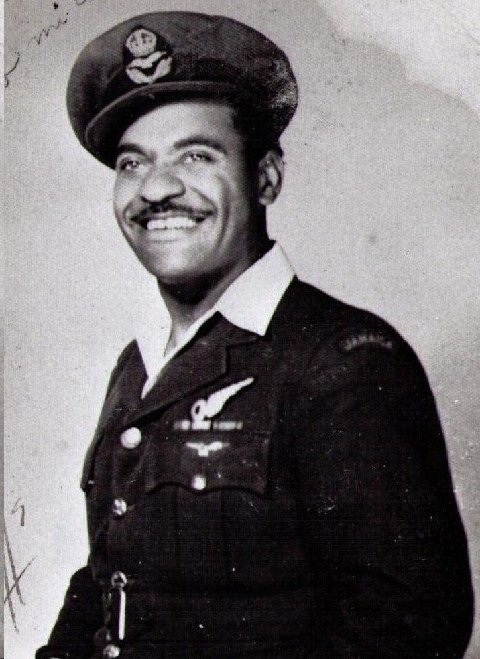
A photo from the WW II album of RAF Flight Lieutenant the Rt. Hon, Dudley J. Thompson, O.C., Q.C of Jamaica, who collaborated in the production of “For King & Country.” At 91 he is as lucid as ever (March 2009).
[Courtesy Gabriel Christian]
–
Born :1/19/1917 Country :Jamaica
Best known for/as: Lawyer Pan-African activist / Defended Jomo Kenyatta Biography: Dudley Thompson is a man of many distinctions. Regarded as an intellectual and long standing Pan-Africanist, a friend and colleague of George Padmore, Kwame Nkrumah, C.L.R. James, Julius Nyerre and M.K.O. Abiola. Thompson in his earlier years fought as pilot in active combat during his tenure in the RAAF. As a lawyer he has defended Jomo Kenyatta during the Mau Mau trials is Kenya.Played an effective role in the independence movement of both Belize and Bahamas. In Jamaica he has held a variety of official positions and was awarded the Order of Jamaica, one of Jamaica’s most prestigious decorations, for distinguished service in the field of International Affairs and his contribution to the legal developments in Jamaica.
Biography: Dudley Thompson is a man of many distinctions. Regarded as an intellectual and long standing Pan-Africanist, a friend and colleague of George Padmore, Kwame Nkrumah, C.L.R. James, Julius Nyerre and M.K.O. Abiola. Thompson in his earlier years fought as pilot in active combat during his tenure in the RAAF. As a lawyer he has defended Jomo Kenyatta during the Mau Mau trials is Kenya.Played an effective role in the independence movement of both Belize and Bahamas. In Jamaica he has held a variety of official positions and was awarded the Order of Jamaica, one of Jamaica’s most prestigious decorations, for distinguished service in the field of International Affairs and his contribution to the legal developments in Jamaica.
Awarded a medal by the OAU as a “Legend Of Africa”.
[Source: Afiwi.com]
Official website of Dudley Thompson
Dudley J. Thompson, Q.C.
Flight Lieutenant
Royal Air Force
World War II
Excerpt from an interview with Irving W. Andre – For King & Country (Andre & Christian 2008)
In 1940 an unlikely incident caused a dramatic change in the trajectory of Thompson’s life. On a propitious day, he found himself within the confines of a dentist’s office in Kingston, Jamaica. As he waited his turn, he picked up a magazine which had excerpts from Adolf Hitler’s Mein Kampf. Thompson started reading out of interest and a necessity borne out of anxiety engendered by his impending encounter with the dentist. Soon however, his attention was riveted to the magazine. Enraged, he read the German leader’s disparaging views about “Negroes.” He was immediately gripped by a sudden anger and desire to fly to Germany and teach a lesson in “civility” to the German leader.
At that moment Dudley Thompson’s teaching career was over. Resolutely, he decided to join the war effort. He took a ship to Canada to train as a pilot. Upon his arrival, the authorities advised that it would take two years training before he could qualify as a pilot. Thompson did not want to wait that long. He felt that the war would end before he qualified. He therefore decided to return to Jamaica and travel to England instead.
Accompanied by approximately ten of his compatriots, Thompson boarded a ship to England. The ship docked in Ireland. They took a train to Liverpool and Thompson within days of his arrival gravitated towards the RAF recruitment centre.
His timing was impeccable. The application form contained an ominous question: Are you of pure European descent? Many highly qualified West-Indian applicants had been rejected on account of this requirement. When Thompson applied however, it was not rigidly enforced because of the need for more pilots.
Upon completing the form, Thompson replied yes to the question. A burly recruitment officer reviewed the form, stared insolently at the fair complexioned Thompson and asked him if he had understood the question.
“What made you believe I did not understand the question?” Thompson retorted. The officer stared but did not reply. He accepted the form along with that of three of Thompson’s compatriots. He would train at the Officer’s training college at Cranwell. Thenceforth he got his wish and flew as a member of a Lancaster Bomber’s aircrew over Europe. Between 1941 and 1945, he earned several war decorations as a Flight Lieutenant.
[Courtesy Gabriel Christian]
The Exemplary Life of Honourable Dudley Thompson, OJ, QC
On January 20, 2012, Royal Air Force (RAF) veteran of World War II, Dudley Thompson of Jamaica breathed his last. Thompson was a proud Jamaican and Caribbean nationalist and integrationist; he was a champion of Pan Africanism. Indeed he revealed to the authors of For King & Country that he organized the 1945 Pan African Conference in Manchester, England while still clad in the uniform of a RAF Flight Lieutenant. This excerpt provides some insight into this towering figure of our Caribbean and the African Diaspora who dedicated his life to our freedom and betterment. May we always remember himI
On March 1, 2008, Gabriel Christian and I spoke to Honourable Dudley Thompson, legendary educator, WWII fighter pilot, Rhodes Scholar, brilliant lawyer, former Attorney General of Jamaica, Pan Africanist, Ambassador and artist. Dudley Thompson had weaved a wide swath on the intellectual and ideological landscape from Kingston to Kenya and even in retirement had gained prominence as an anti-colonial and post-colonial thinker. His name is mentioned in the same breath with other West-Indian intellectual and radical thinkers such as C.L.R. James, George Padmore and Aime Cesare. Even at 92, with the majority of his contemporaries deceased, Thompson maintains a grueling schedule which would test the mettle of a man two decades younger. He spearheads the international drive for Reparations for the descendants of African slaves, regularly gives lectures in the United States and conducts numerous interviews about his life experiences.
It was therefore with a sense of elation that via a long distance telephone call, Christian and I posed a few questions to Thompson about his wartime experiences. We harboured great expectations about gleaning some details about his experiences given that we had had a very interesting conversation with fellow WWII pilot Judge Ulric Cross. The salient details about Thompson’s life have been set out in his autobiography, From Kingston to Kenya. The Making of a Pan Africanist Lawyer. It has also been canvassed in numerous books, articles and speeches. But we had admonished ourselves that the story is in the details. A life that spanned so many decades would have had twists and turns waiting to be unearthed at each new telling.
And so with the surprisingly clear voice of Thompson resonating over the telephone punctuated by chuckles and a hearty laugh, we learnt of our subject’s life including his WWII experiences.
He was born on January 17, 1917 in Panama of middle class parents. His father, a teacher, had traveled to Panama for work purposes and had returned to Jamaica in 1927. The senior Thompson ensured that his son was well schooled in the rudiments of English, History, Mathematics and Latin and with strict discipline and a near ascetic livelihood, provided his son with the intellectual and indeed moral foundation for a meaningful life in colonial Jamaica.
Dudley Thompson grew up in Westmoreland and was weaned on an intellectual and moral diet concocted by his father. Not surprisingly, upon completion of high school, he won a scholarship to the Mico Teacher’s College where he trained as a teacher for three years. After completing his studies, Thompson went to teach first in the parish of St. Mary and then in that of Westmoreland.
In 1940 an unlikely incident caused a dramatic change in the trajectory of Thompson’s life. On a propitious day, he found himself within the confines of a dentist’s office in Kingston. As he waited his turn, he picked up a magazine which had excerpts from Adolf Hitler’s Mein Kampf. Thompson started reading out of interest and a necessity borne out of anxiety engendered by his impending encounter with the dentist. Soon however, his attention was riveted to the magazine. Enraged, he read the German leader’s disparaging views about “Negroes.” He was immediately gripped by a sudden anger and desire to fly to Germany and shoot down the German leader.
At that moment Dudley Thompson’s teaching career was over. Resolutely, he decided to join the war effort. He took a ship to Canada to train as a pilot. Upon his arrival, the authorities advised that it would take two years training before he could qualify as a pilot. Thompson did not want to wait that long. He felt that the war would end before he qualified. He therefore decided to return to Jamaica and travel to England instead.
Accompanied by approximately ten of his compatriots, Thompson boarded a ship to England. The ship docked in Ireland. They took a train to Liverpool and Thompson within days of his arrival gravitated towards the RAF recruitment centre.
His timing was impeccable. The application form contained an ominous question: Are you of pure European descent? Many highly qualified West-Indian applicants had been rejected on account of this requirement. When Thompson applied however, it was not rigidly enforced because of the need for more pilots.
Upon completing the form, Thompson replied yes to the question. A burly recruitment officer reviewed the form, stared insolently at the fair complexioned Thompson and asked him if he had understood the question.
“What made you believe I did not understand the question?” Thompson retorted. The officer stared but did not reply. He accepted the form along with that of three of Thompson’s compatriots. Dudley Thompson was ready to rain bombs on Adolf Hitler’s Germany.
He would train at the Officer’s training college at Cranwell. Thenceforth he got his wish and flew as a member of an aircrew over Europe. Between 1941 and 1945, he earned several war decorations as a Flight Lieutenant.
During his tour of duty, he experienced little racial hostility. In one incident, a white South African attacked him without provocation.
“I’m afraid I damaged him,” Thompson noted succinctly.
Following the end of the war, he worked with Ulric Cross in the Colonial Office as a liaison officer before returning to Jamaica. An unlikely incident initiated his interest in law and served as a prelude for a lifelong career in the legal profession. Returning Jamaican RAF officers on a Swedish ship the Bergensford, armed themselves and assumed control of the ship after being insulted by white Trinidadian officers about the quality of their service during the war. As senior Jamaican RAF officer on the island Thompson was asked to mediate. He got the Jamaican men to lay down their arms and arranged for the ship to dock at Kingston where they would be met by their families. The authorities however had the ship dock at a Port Royal coaling station where armed soldiers with rifles drawn awaited the men. Thompson quickly arranged for the greeting party to withdraw their arms. The disembarkation proceeded without incident until one of the returning men, Corporal Alexander, suddenly punched the white officer, Colonel Dagleish who commanded the troops on the ground. Following his arrest, Alexander asked Thompson to represent him. Colonel Dagleish stormed out of the proceedings in the ensuing court martial proceedings, unable or unwilling to withstand Thompson’s withering cross-examination. With Dagleish’s departure, the prosecution’s case folded and Alexander was exonerated.
Flight Lieutenant Dudley Thompson was soon awarded a Rhodes Scholarship which took him to Oxford where he graduated with a Masters Degree in Jurisprudence and later a Bachelor in Civil Law. For a period, he served as president of the West Indian Students’ Union and interacted with Eugenia Charles (later Prime Minister of Dominica) while she served as an executive member. In 1950 he was called to the Bar in London from the Gray’s Inn. He was tutored by Sir Dingle Foote, a future Solicitor General of the United Kingdom.
By 1950, Dudley Thompson was at a professional crossroads. His logical next step would have been to return to Jamaica to set up a lucrative law practice and occupy an exalted place in the island’s social circles. Indeed, Norman Washington Manley Q.C. who would become Jamaica’s Prime Minister and National Hero offered him a position in his law firm. That Manley would make him an offer which virtually every West-Indian barrister would accept was a tremendous honour. And yet family circumstances conspired to prevent him from doing so.
Thompson had gotten married a few years earlier and had two children. A son had gotten ill and showed no signs of recuperating. When asked what could be done, the family doctor recommended a warm dry climate for Thompson’s ailing son. The doctor knew the ideal place for his young patient’s recuperation specifically Tanganyika in East Africa.
And so Thompson responded, in his words to a “call of the blood.”
“It was the best decision I ever made,” he added.
He had good reason for this admission. He traveled to East Africa and practiced law in Kenya and Tanganyika. He became close friends with the countries’ future leaders Jomo Kenyatta and Julius Nyerere. Indeed, the highlight of his legal career was his successful defense of the former along with legal heavyweights such as H.O.A. Davis of Nigeria and D.N. Pritt Q.C. The irony of this momentous legal battle was not lost on Thompson. The colonial who had taken up arms against the empire’s arch enemy was now engaged in a tough battle against the mother country in defense of one who had taken up arms against the injustices of the self same mother country.
In the ensuing years, Thompson built a solid reputation as an excellent advocate. He interacted easily with influential African leaders such as Kenyatta, Kwame Nkrumah and Nyerere. When the latter sought a Chief Justice for his fledging country Thompson served as a reference for the brilliant Dominican jurist Telford Georges who ultimately got the nod for the position.
Thompson left a lucrative practice in Africa to return to Jamaica in the early 1960s on the eve of the island’s attainment of national independence. It was the best and worst of times. Jamaica was in the throes of despair and jubilation having opted out of the West-Indies Federation. Norman Washington Manley would fight a valiant but losing political battle against his nemesis and cousin, Alexander Bustamante. Thompson would join the fray when, widely referred to as “Burning Spear,” a nickname of Jomo Kenyatta, he fought and surprisingly lost a grueling electoral battle against Jamaica’s future Prime Minister Edward Seaga.
Thompson recovered quickly however and immersed himself in his law practice. In 1962 he became president of the Jamaica Bar Association, a position he held for many years. He practiced in many islands including Trinidad, Barbados, St. Kitts, Dominica, the Bahamas and Grenada. He was appointed a Queens Council in 1963. He also played a role in the independence movement of both Belize and Bahamas.
Politics however remained a central preoccupation. Thompson was a vice-president of the Peoples National Party (PNP). He became a member of both the Senate of Jamaica and later, a member of its House of Representatives. With the triumph of Michael Manley at the polls in 1972, Thompson would occupy a slew of important Cabinet posts including Minister of Foreign Affairs, National Security and Minister of Mines and Natural Resources.
As Minister of Foreign Affairs, Thompson traveled with Manley to Cuba in the mid 1970s for a secret meeting with Fidel Castro. The latter took them to his summer retreat and spread out a map on a table. Castro pointed to the unimpeded access which the South African military forces had to destabilize the entire region with its Apartheid philosophy. The Cuban leader pointed out that but for the intervention of his forces and the decisive victories in repulsing the Apartheid forces, southern Africa would have degenerated into a racist redoubt for the South African government.
Thompson also played a significant role as an Ambassador of Jamaica. He helped renegotiate the contracts with the bauxite and alumina multinationals and a crucial role in the formation of the International Bauxite Association. He also figured prominently in securing Jamaica as the permanent site for the International Seabed Authority in Kingston.
Such an extraordinary lifetime of service to the cause of freedom and African liberation rarely goes unnoticed or unheralded. Dudley Thompson has, not surprisingly, received a number of accolades including the Order of Jamaica, a Gold Medal from the Mico College, and another from the Organization of African States recognizing his status as a “Legend of Africa.” In 1992, he was empanelled as a member of the Group of Eminent Persons charged with implementing the Movement for Reparations to Africa and the Diaspora.
Flight Lieutenant Dudley J. Thompson, the man who left Jamaica to bomb the daylights out of Adolf Hitler, has soared to the stratosphere of success in his life and in so doing has made the world a better place for generations of people worldwide.
[An Excerpt from: For King & Country the Service and Sacrifice of the British West Indian Military by Judge Irving W. Andre and Gabriel J. Christian (Pont Casse Press, 2009)]

[Click on image to enlarge; courtesy Royal Air Forces Association Jamaica]



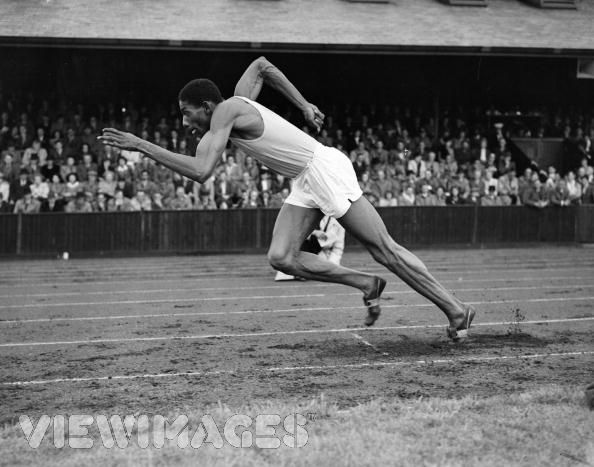

 Biography: Dudley Thompson is a man of many distinctions. Regarded as an intellectual and long standing Pan-Africanist, a friend and colleague of George Padmore, Kwame Nkrumah, C.L.R. James, Julius Nyerre and M.K.O. Abiola. Thompson in his earlier years fought as pilot in active combat during his tenure in the RAAF. As a lawyer he has defended Jomo Kenyatta during the Mau Mau trials is Kenya.Played an effective role in the independence movement of both Belize and Bahamas. In Jamaica he has held a variety of official positions and was awarded the Order of Jamaica, one of Jamaica’s most prestigious decorations, for distinguished service in the field of International Affairs and his contribution to the legal developments in Jamaica.
Biography: Dudley Thompson is a man of many distinctions. Regarded as an intellectual and long standing Pan-Africanist, a friend and colleague of George Padmore, Kwame Nkrumah, C.L.R. James, Julius Nyerre and M.K.O. Abiola. Thompson in his earlier years fought as pilot in active combat during his tenure in the RAAF. As a lawyer he has defended Jomo Kenyatta during the Mau Mau trials is Kenya.Played an effective role in the independence movement of both Belize and Bahamas. In Jamaica he has held a variety of official positions and was awarded the Order of Jamaica, one of Jamaica’s most prestigious decorations, for distinguished service in the field of International Affairs and his contribution to the legal developments in Jamaica.


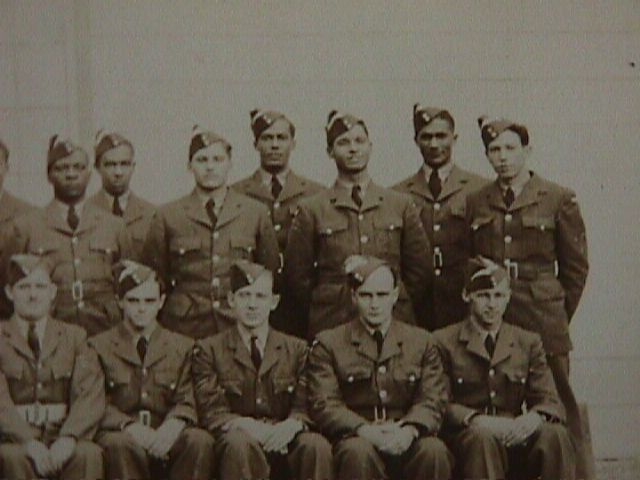

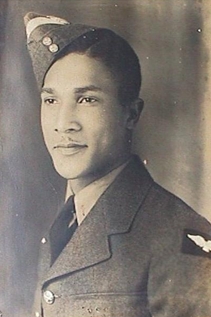

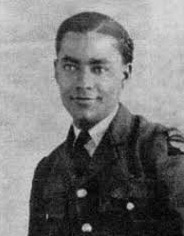











 Promoting the Noble Heritage of Caribbean Air Crew who Served in Freedom's Cause in World War II - The Law Firm of Gabriel J Christian & Associates, LLC.
Promoting the Noble Heritage of Caribbean Air Crew who Served in Freedom's Cause in World War II - The Law Firm of Gabriel J Christian & Associates, LLC.